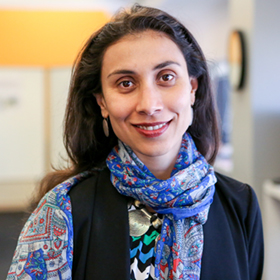We launched this blog series last month with a question: Can innovation labs help solve some of the world's most vexing social problems? The answer we heard from several lab pioneers is an unqualified "yes." Labs offer a new form of collaborative problem solving grounded in a philosophy of experimentation and learning. And we learned that labs are well-suited to address complex problems that have defied top-down solutions and need, instead, input and action from multiple stakeholders to forge change.
Yet, we also learned from our surveys and interviews with experts and practitioners that living up to their promise and scaling this approach more broadly will require innovation labs and sector leaders to address at least three milestones over the years ahead.
Labs need to move from anecdotes to evidence: Today, labs rely primarily on anecdotes and client satisfaction as proxies for measuring results. Fewer than 15 percent of innovation labs in our survey measure their achievements in a rigorous way. Advancing the field will require more proven success stories that link the process to the eventual impact, such as the UK's Behavioural Insights Team's ability to raise more than £200 million in additional tax revenue as a result of the lab, and Unilever's commitment by 2020 to halve the environmental footprint of its products and to improve the lives of smallholder farmers around the globe. As the field continues to grow, it needs to invest in data collection and measurement, both to learn and improve, and to demonstrate impact.
To drive sustainable change, more labs need to be embedded in the communities they serve: While many innovation labs work on global issues, our survey results show that few of them are based in countries outside North America and Europe. By definition, labs involve stakeholders in co-creating solutions to problems. But most of the world's poor live in developing parts of South America, Africa, and Asia, where few innovation labs exist.
As Marlon Parker, founder of RLabs in Cape Town, South Africa, reminded us on our webinar, lasting systemic change requires community capacity building and creating environments where people can co-create and implement solutions to the challenges they face. RLabs serves as a neutral facilitator for cross-sector groups to work together. It practices this approach in 22 countries, touching the lives of more than five million people, empowering communities most affected by complex challenges to develop lasting, systemic solutions..
inCompass, an innovation lab based in Cambodia, designs products and services that serve the country's poor. The starting point and final check for every project is the user, which underscores both the need and benefits of locating innovation labs in close proximity to the populations served. Over years ahead, we hope to see more practitioners like RLabs, inCompass, and InSTEDD applying and adapting lab approaches in developing countries to bring their benefits to the communities and people most in need.
You have to shift minds, if you want to shift behavior: Organizations sometimes assume that they understand the problem, that the problem is constant, and that they know the steps required over a period of time to solve it, noted Zaid Hassan, cofounder of Reos Partners. But this business-as-usual approach is "too rigid and destined to fail when applied to complex, rapidly shifting, multi-stakeholder social problems," he said.
By contrast, innovation labs require comfort with a new mindset on how to solve social problems. This "innovation mindset" comes with openness to challenging assumptions, learning from experimentation and failures, and a "comfort in being uncomfortable." At the Rockefeller Foundation, labs have provided a welcoming space to imagine new ideas without fear of judgment. We asked new questions, and as a result, developed better strategies, in part because of a willingness to engage stakeholders in formulating solutions. We had to get comfortable with losing a little control and getting out in the field to start testing, and "failing forward," sooner and at lower cost. While a lab might not be the right answer for all problems or organizations, the philosophy and mindset of building solutions with the community of actors, learning by doing and prototyping can definitely redefine "business as usual."
The Rockefeller Foundation took a risk by applying the innovation lab approach to six of our initiatives, with The Bridgespan Group as the learning partner. While it is too early to understand the full impact of this experiment, we believe this has already started to pay off—it has created networks and knowledge where they didn't exist, built capacity of our staff and other participants, and helped us envision novel solutions to complex problems. We find it encouraging that more institutions are looking to adopt the lab practice.
While the odds against overcoming complex social problems remain high, they improve when we embrace new approaches like innovation labs. They allow us to learn, adapt, and respond to the dynamics of the context. As the World Bank's Aleem Walji noted, innovation labs allow us to learn faster and succeed sooner.
Nidhi Sahni is a manager with The Bridgespan Group in New York.
Amira Bliss is a senior program associate at The Rockefeller Foundation in New York.



